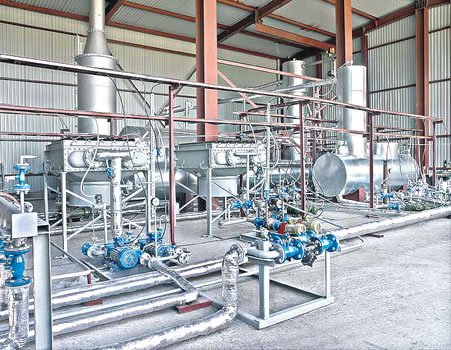Modular refineries cannot cure fuel availability. This is because they are small, expensive to build and do not have economies of scale.
Investors in modular refineries may take a good look at their projects in many respects such as crude oil sources, ability to procure funding, economic viability and markets. Experts in this area have said that the approximate cost of a 10,000 barrel per day modular refinery would be in the range of $50 million.
In fact those in the range of 20,000 barrels per day could be touching $250 million. They also believe that mini and modular refineries will struggle to be profitable and will not be able to compete with the larger capacity refineries if they do not have the advantages and incentives that the Federal Government is willing to give to the Niger Delta modular refineries.
Presentations on the prospects of modular refineries were made at the Villa to the then Acting President, Yemi Osinbajo, by the Society of Chemical Engineers. Similarly, the Nigerian Academy of Engineering also held a public lecture titled “Modular Refineries: Prospects and Challenges”. These events demonstrate the level of interest being shown by Nigerian entrepreneurs and investors.
Of the 23 licenses so far awarded to applicants, more than 80 percent of them have not taken off, and will not take off for reasons already mentioned above – economic viability, funding challenges, crude oil sourcing, product market, evacuation facilities and challenging logistics. It would be interesting to see how many of these licenses will translate into real projects. It is worthy of note that apart from the three NNPC refineries in Warri, Kaduna and Port Harcourt, theNiger Delta Petroleum Development Company (NDPD) 1,000 barrel per day modular refinery which has been expanded to about 10,000 is one of the two operating refineries in the country that have been brought to production in at least the last thirty years. The other one is WalterSmith Refining and petrochemical Company. These are the ones that have come on stream out of the 23 companies that were offered licenses.
Edo Refinery and Petrochemical Company was said to be at the commissioning stage as at July 2021 and since then nothing has been hard about it.
One is sure that it is not the federal government that is going to build those refineries it is proposing for Niger Delta region. Private investors would be given those licenses.
There are about 136 refineries in America with 47 of them in Texas, alone, none of these refineries are owned by the American government.
The Federal Government recently said it was working to establish three modular refineries in each of the oil-producing states, particularly in the Niger Delta region.
Going by the plan, the government would have to establish about 18 refineries in the country’s six major oil-producing states in the Niger Delta including Rivers, Bayelsa, Akwa Ibom, Delta, Edo and Cross River.
It said the objective was to halt the illegal artisanal refining activities going on in oil producing areas and its impact on residents in the affected locations.
The Minister of State for Environment, Chief Sharon Ikeazor, disclosed this in a statement issued by her ministry in Abuja.
She said, “In a bid to find alternative sources of livelihood for artisanal refiners and to encourage them to disengage completely from their illegal activities, the Federal Ministry of Environment in collaboration with the Office of the Senior Special Adviser to the President on Niger Delta Affairs and other critical stakeholders, are working on the establishment of three modular refineries per state in the oil-producing areas as a pilot scheme to engage them (artisanal refiners).
These modular refineries are intended to be 100 per cent designed and manufactured in Nigeria using the expertise of government institutions such as the Ministry of Petroleum Resources, Federal University of Petroleum Effurun and Ahmadu Bello University Zaria. Petroleum Technology Development Fund, Nigerian Content Development and Management Board, National Agency for Science and Engineering Infrastructure.

